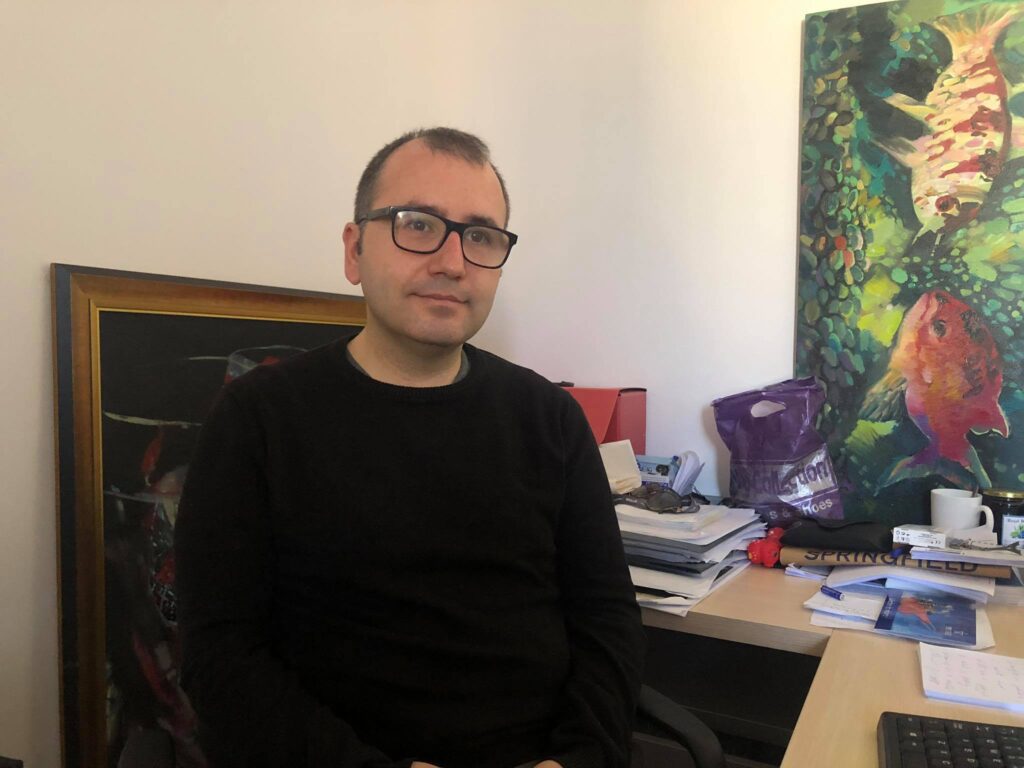
Tell us a little about yourself, your family, including how you got started as a journalist?
I am originally from the seaside port city of Durres in Western Albania, where I spent my childhood playing through its Roman ruins, hiking the hills full olive groves and going to the beach. I got started in journalism at the Florida Times Union – the metro newspaper of city of Jacksonville, Florida, while I was in college.
Your professional work…
After I came back to Albania, I have worked as a correspondent for Balkan Insight, BIRN’s flagship regional publication and contributed bylines to Foreign Policy, Washington Post, Christian Science Monitor, Businessweek, Transitions Online, Global Post, the Sunday Telegraph and many other news outlets.
You work now for years for BIRN. Can you tell us a little more about your work, please.
I have been the Albania editor for BIRN for more than a decade and has been one of the most gratifying experiences of my professional life, working with a wonderful pool of editors and journalists, helping to establish a tradition of quality investigative reporting in Albania.
Is it hard to be an investigative journalist in Albania?
It’s hard to be an investigative journalist everywhere. There are places that it is easier than in Albania and places where it’s much harder than in Albania. The thing is that the truth has enemies everywhere and Albania makes no exception.
Attacks on investigative journalists are very often. You have also been attacked. Can you tell us more about it.
The public often sees attacks journalist suffer as a badge of honour, as a sort of baptism by fire that shows the length of mudded waters stirred by our investigations, but this can’t be further from the truth. There is no need for journalists to be attacked – both physically and verbally, for their work to matter and for society to notice and take up note.
What was your biggest challenge in your work?
The biggest challenge of my work is the increasing threat of government regulation of online media in Albania.
How you see the media situation in Albania today?
In recent years the media situation in Albania has deteriorated, due to the political and economic interests of media owners that skew the editorial line, physical attacks against journalists that go unpunished, poor job security and a crises that has being brewing for years in a crowded market – made worst by COVID-19.
How hard it was to stay always professional as journalists?
Depends how deep you conviction goes that professional journalism is essential to a democratic society. Certainly all journalists make mistakes, but we learn from them and through time it’s easier to be professional.
Has Covid19 influence on the media in Albania?
The coronavirus has cut advertising revenue and in some outlets journalists were forced to accept painful salary cuts. The journalists as frontline workers have faced the risk of infections and the psychological trauma of covering the effects of the pandemic. Access to information has been restricted and journalists have struggled to gate face time with human sources.
How important is the work of SEEMO for you?
SEEMO is a partner organization that helps raise concern in early critical stages when journalists are attacked and threatened – a time they need support the most.
Do we have solidarity between journalists in Albania?
We have solidarity among journalists but not always solidarity from media organizations toward journalists.
Please walk us through a typical workday. How do you manage your time today?
A typical work day starts with reading the media headlines over a cup of coffee and ends up late in the evening editing the day’s stories that reporters bring in the office.
Finally, as press freedom, human rights and democracy are very important in your life, can you give please some advice for younger journalists?
The best formula for young journalists is to be honest and truthful to their audience and readers. If you can’t respect them and their right to access factual, balanced and objective information, they should consider a switch to PR.
